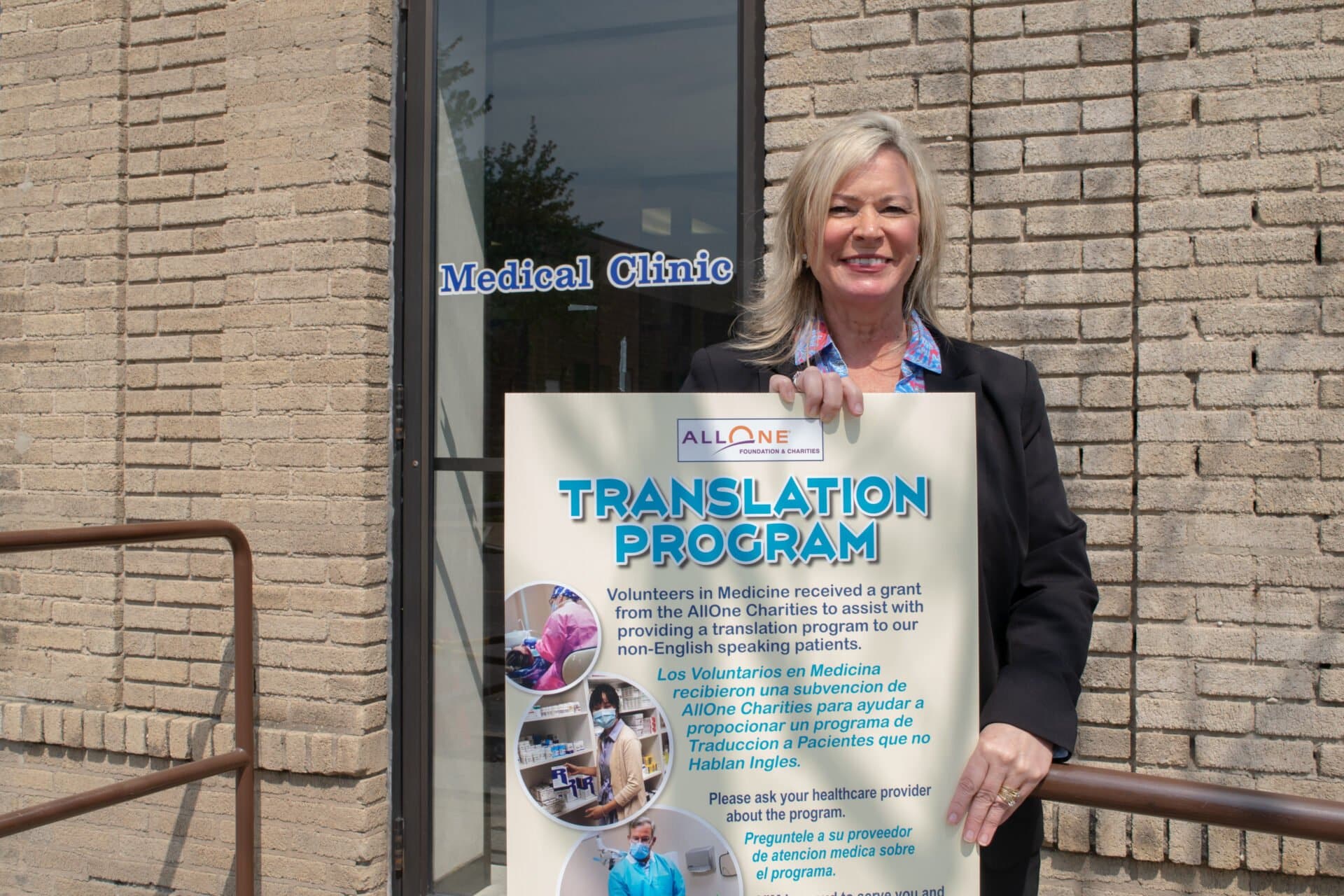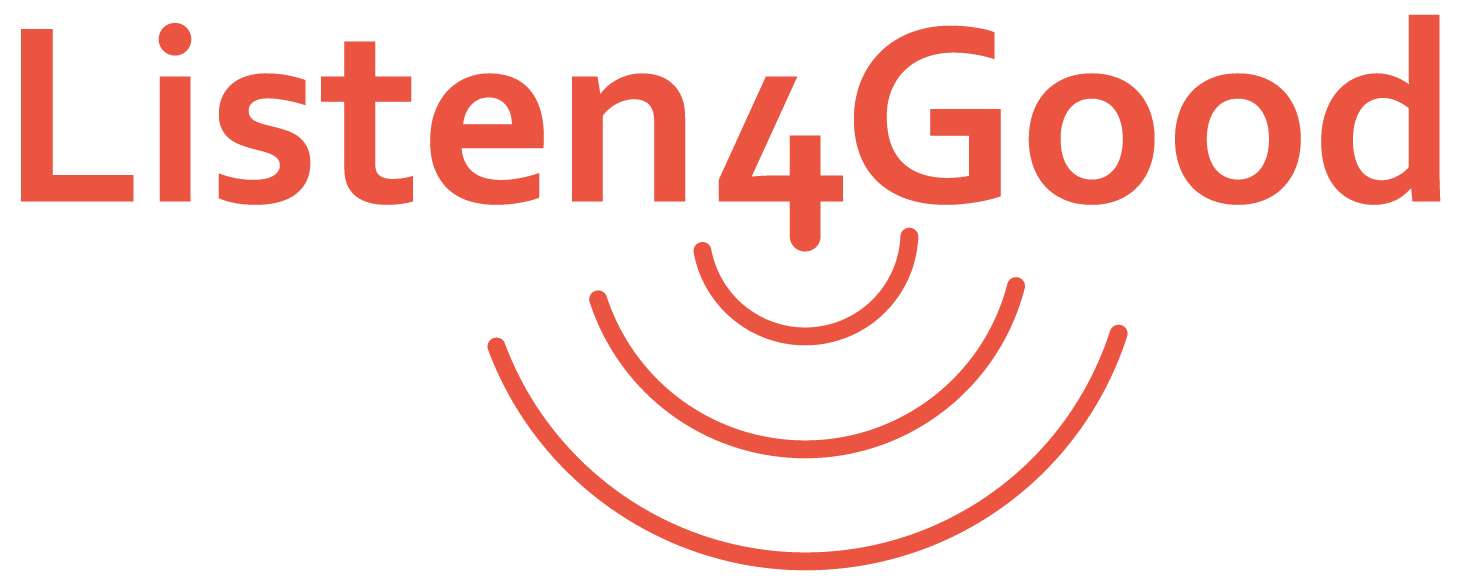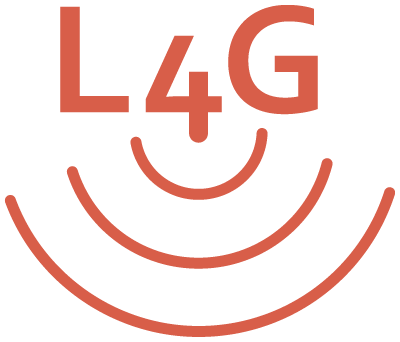Overcoming Language Barriers in Feedback
January 29, 2023
By Kelly Ranieli

COVID prevention poster in English and Spanish
Access to affordable, quality healthcare is a challenge for many low-income families, and Volunteers in Medicine (VIM) in Wilkes Barre knows this well.
VIM is located in Luzerne County, Pennsylvania where, according to the U.S. Census Bureau, 20.4% of the families in this former coal-mining region live in poverty and 8.8% of residents are uninsured. About 23.6% of the population speaks a language other than English at home.
VIM provides free, high-quality, comprehensive medical, dental, and behavioral care to working uninsured families with incomes at or below 200% of federal poverty guidelines. Approximately 42% of VIM’s patients are non-English speaking. The VIM team is small and resourceful, with six paid, full-time staff members and approximately 125 volunteers serving 1,500 patients a year.
VIM recognized the importance of surveys and had collected feedback on health equity and patient satisfaction several times over its first ten years. However, because they were not formally trained as researchers, they felt unsure about the results they collected with their DIY methods.
They wondered: had they collected data properly? Were they interpreting the data accurately?
In late 2019, VIM joined Listen4Good, as part of a sponsored cohort of grantees from the Northeastern Pennsylvania (NEPA) Funders Collaborative and the Moses Taylor Foundation.
Excited for the opportunity to work with Listen4Good, VIM wanted to collect feedback for two purposes:
- VIM wished to collect impact data on the number of uninsured patients who went to VIM rather than the local ER, which would help them quantify savings to the local hospital system.
- In their commitment to provide patient-centered care, VIM wanted to obtain patient feedback to understand if they needed to add or improve service offerings.
Both streams of feedback were important as VIM pursued certification as a Patient-Centered Medical Home (PCMH), which would open up new opportunities to serve more uninsured working families in the area.
The VIM team eagerly set to work and drafted its first Listen4Good survey with the help of their Listen4Good coach, Kris Helé, and prepared to administer it to patients in the spring of 2020.
As VIM considered its feedback approach, it recognized that it would need to find ways to overcome language barriers with its Spanish-speaking patients, as no staff member spoke fluent Spanish. Up until that point, to serve Spanish speakers, VIM would ask patients to bring their own translator. Staff would also use Google Translate.
Then, the pandemic hit in March 2020, fundamentally changing VIM’s work.
VIM’s small staff gathered to develop and implement new methods for service delivery to their patients, who needed VIM more than ever. It was a critical time for the health of the community. VIM made the difficult decision to offer telehealth visits from March to June of 2020 to ensure that all patients, staff, and volunteers remained safe.
During this time, health and economic challenges and barriers to care became dramatically more acute. The clinic saw an influx of new patients as families lost their jobs and their health insurance due to the pandemic. Some of VIM’s volunteers decided not to return, especially those who were elderly.
While shifting its service model under these extreme circumstances, the team at VIM also knew they had to shift their approach to their Listen4Good survey.
VIM worked with their Listen4Good coach to design a new survey focused on addressing patient needs related to the pandemic. Due to concerns about the spread of germs and to reach patients who were wary of visiting the clinic, they decided to administer the surveys by telephone, and enlisted the help of students and volunteers to do so.
Tavion, a health administration student from Misericordia University, contacted over 500 patients by phone, ultimately capturing information from 114 patients over four months. These calls became opportunities for consultation and personal outreach. Tavion would help patients schedule appointments if they had unmet healthcare needs. Some calls took upwards of 20 minutes, as people felt lonely and isolated, and craved human connection.
While this survey administration method was remarkably effective, it was not perfect. Many calls went to voicemail and were not returned.
Significantly, the language issue cropped up once again, as Tavion did not speak Spanish. If he called a Spanish-only household, the survey could not be completed, omitting a key segment of patient voice from the data collected.
The process of administering the telephone survey, with none of these patients represented in the feedback, underscored and justified the critical need for a medical translation service. In fact, even more than the survey itself, the very process of creating a Listen4Good feedback loop revealed a fundamental gap in service delivery, and crystallized the need to address it.
VIM successfully applied for a grant from AllOne Charities to implement LanguageLine, a healthcare interpretation line. By using LanguageLine to access translators via phone or video, VIM has been able to better serve its patients who speak languages other than English.
VIM eventually obtained its certification as a Patient-Centered Medical Home (PCMH) and went on to complete a second feedback loop with Listen4Good, focused on health services and emergency room use, their initial goals for feedback.
Their second feedback loop is commemorated by the signs they have posted in their offices in both English and Spanish. The signs summarize what VIM heard from their clients and the actions they decided to take in response, using both languages to close the loop with everyone they serve.

